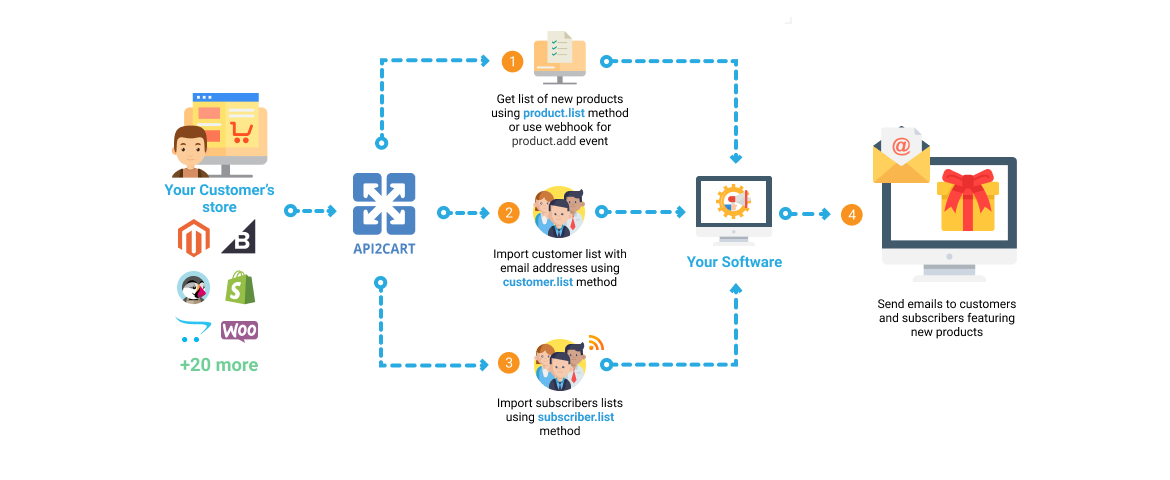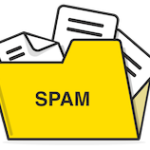Email marketing integrations boost your campaigns by connecting different tools. They help streamline tasks and improve results. Some of the top email marketing platforms, such as Mailchimp and HubSpot, offer integrations with other marketing tools like CRM systems, social media platforms, and analytics tools. This allows businesses to create a cohesive and effective marketing strategy by seamlessly connecting different aspects of their campaigns. By utilizing these integrations, businesses can save time and resources while also gaining deeper insights into their audience and improving the overall impact of their email marketing efforts.
In today’s digital age, email marketing is essential for businesses. It’s not just about sending emails anymore. Integrations can connect your email platform with CRM systems, social media, and analytics tools. This makes your marketing efforts more efficient and data-driven.
Imagine having all your tools working together seamlessly. This can save time and provide better insights into your audience. As a result, you can create more personalized and effective campaigns. In this blog, we will explore how email marketing integrations can enhance your marketing strategy. Stay tuned to discover the benefits and key integrations that can transform your email marketing efforts.
Table of Contents
ToggleIntroduction To Email Marketing Integrations
Email marketing integrations are tools that connect your email marketing platform with other software. These integrations help automate tasks, manage data, and improve overall marketing efficiency. By integrating various tools, you can create a seamless workflow. This ensures that your email campaigns are more effective and targeted.
Importance Of Integrations
Integrations play a crucial role in email marketing. They help you save time by automating repetitive tasks. You can sync data between different platforms, ensuring consistency. Integrations also provide valuable insights. These insights help you make informed decisions. With the right integrations, you can personalize your campaigns, leading to better engagement.
Overview Of Popular Tools
Several tools can enhance your email marketing efforts. Here are some popular options:
- Mailchimp: Known for its user-friendly interface and powerful features. It offers integrations with social media, e-commerce platforms, and CRM systems.
- HubSpot: A comprehensive marketing tool that includes email marketing, CRM, and analytics. It integrates well with various third-party applications.
- Constant Contact: Ideal for small businesses. It provides integrations with social media, e-commerce, and other marketing tools.
- ActiveCampaign: Focuses on automation and CRM. It offers integrations with e-commerce platforms, social media, and other marketing software.
Choosing the right tools depends on your specific needs. Consider your business goals and the features each tool offers. Integration can make your email marketing more efficient and effective.

Credit: api2cart.com
Choosing The Right Tools
Choosing the right tools for Email Marketing Integrations can feel overwhelming. There are many options available. You need tools that fit your business needs. The right tools can enhance your campaigns. They can also save you time and effort. Below are some key considerations to help you make the right choice.
Factors To Consider
Several factors come into play when choosing email marketing tools. You need to think about your business goals. What do you want to achieve? Also, consider your budget. Some tools are free, while others require a subscription. Finally, think about the features you need. Do you need analytics? Automation? Customer segmentation?
Compatibility With Existing Systems
It’s crucial that your email marketing tools are compatible with your existing systems. This ensures smooth integration and better performance. Check if the tool can easily integrate with your CRM, e-commerce platform, and other software. Below is a table showing some common integrations:
| System | Compatible Tools |
|---|---|
| CRM | HubSpot, Salesforce |
| E-commerce | Shopify, WooCommerce |
| Analytics | Google Analytics, Piwik |
Make sure to check the documentation of each tool. This will help you understand how they integrate with your systems. It will also help you avoid potential issues.
Choosing the right tools can make or break your email marketing strategy. Take your time to assess your needs and options. The right choice can lead to better engagement and results.
Crm Integrations
Email marketing integrations with CRM systems can greatly improve your marketing efforts. Integrating your email marketing platform with your CRM ensures a seamless flow of data. This allows for more personalized and effective communication with your customers. Let’s dive into the benefits and top CRM tools available for email marketing integrations.
Benefits Of Crm Integrations
Integrating your CRM with your email marketing platform offers several advantages:
- Improved Customer Insights: Access to detailed customer data for better targeting.
- Personalized Campaigns: Tailor messages based on customer behavior and preferences.
- Enhanced Automation: Automate tasks like follow-ups and lead nurturing.
- Better Segmentation: Segment your audience based on various criteria.
- Unified Reporting: Combine email and customer data for comprehensive reports.
Top Crm Tools
Here are some of the top CRM tools that work well with email marketing platforms:
| CRM Tool | Key Features |
|---|---|
| Salesforce |
|
| HubSpot |
|
| Zoho CRM |
|
| Pipedrive |
|
| Microsoft Dynamics 365 |
|

Credit: zapier.com
E-commerce Integrations
Email marketing integrations are essential for e-commerce businesses. They help streamline operations and enhance customer interactions. By integrating email marketing with e-commerce platforms, businesses can automate processes, personalize communications, and improve customer experiences.
Enhancing Customer Experience
Integrating email marketing with e-commerce platforms can significantly enhance the customer experience. Here are a few ways how:
- Personalized Recommendations: Send tailored product suggestions based on customer behavior.
- Abandoned Cart Reminders: Remind customers to complete their purchases.
- Order Confirmations: Instantly notify customers about their order status.
- Post-Purchase Follow-ups: Engage customers with thank you emails and reviews requests.
Popular E-commerce Platforms
Various e-commerce platforms offer seamless email marketing integrations. Here are some popular ones:
| Platform | Key Features |
|---|---|
| Shopify | Automated emails, personalized campaigns, and detailed analytics. |
| WooCommerce | Customizable email templates, segmentation, and marketing automation. |
| Magento | Advanced segmentation, dynamic content, and triggered campaigns. |
These platforms support integrations with popular email marketing tools. For example, Mailchimp, Constant Contact, and Klaviyo. Integrating these tools with your e-commerce platform can help you streamline your marketing efforts and enhance your customer experience.
Social Media Integrations
Integrating email marketing with social media can boost your reach. It combines the strengths of both platforms. Social media integrations can help you engage more users. You can also track and analyze your campaigns better.
Expanding Reach
By linking email marketing with social media, you can expand your reach. You can share your email content on social platforms. This helps to attract more subscribers. It also helps to increase engagement. Users who might not open emails can see your message on social media.
Key Social Media Tools
Several tools can help integrate email marketing with social media. Below are some key tools:
- Facebook: Use Facebook Ads to target email subscribers.
- Twitter: Share your newsletters on Twitter.
- Instagram: Add email signup links in your bio.
- LinkedIn: Share your email content in LinkedIn posts.
These tools can help you reach a larger audience. They also help to drive traffic to your website. This can lead to higher conversion rates.
Below is a table that shows the benefits of each tool:
| Tool | Benefit |
|---|---|
| Targeted ads to email subscribers | |
| Share newsletters | |
| Add signup links in bio | |
| Share email content in posts |
Integrating email marketing with social media offers many benefits. It helps to enhance your campaigns. It also helps to improve engagement and conversion rates.
Analytics And Reporting
Email marketing integrations offer many benefits. One of the most important is Analytics and Reporting. Understanding how your campaigns perform is key to improving them. This section covers the essentials of tracking and analyzing your email marketing efforts.
Tracking Campaign Performance
Tracking your campaign’s performance is crucial. It helps you understand what works and what doesn’t. You can measure open rates, click-through rates, and conversion rates. These metrics show how your audience engages with your emails.
To track these metrics effectively, you need the right tools. Some platforms offer built-in analytics. Others allow you to integrate with third-party tools. These tools provide detailed insights. They help you make data-driven decisions.
Essential Analytics Tools
Choosing the right analytics tools is essential. Here are some popular options:
| Tool | Features |
|---|---|
| Google Analytics | Tracks website traffic, user behavior, and conversions from email campaigns. |
| Mailchimp | Provides detailed reports on email opens, clicks, and more. |
| HubSpot | Offers advanced analytics and integrates with CRM for deeper insights. |
These tools offer various features. They help you track different metrics. For example, Google Analytics tracks website traffic. Mailchimp provides detailed email reports. HubSpot offers advanced analytics and CRM integration.
Using these tools, you can create custom reports. These reports help you understand your audience better. They show you what content resonates with them. You can use this information to improve your future campaigns.
In summary, analytics and reporting are vital. They provide insights into your campaign’s performance. They help you make informed decisions. Using the right tools, you can gain a deeper understanding of your audience. This leads to more effective email marketing strategies.
Automation Tools
Email marketing integrations are essential for modern businesses. They streamline processes and enhance the effectiveness of campaigns. Automation tools play a crucial role in this context. They help in managing, scheduling, and optimizing email marketing efforts. Let’s dive into how these tools can benefit your email marketing strategy.
Streamlining Email Campaigns
Automation tools simplify the management of email campaigns. They allow you to schedule emails, segment lists, and personalize content. This ensures that your audience receives the right message at the right time. Here are some ways automation tools can streamline your email campaigns:
- Scheduling: Automate the sending of emails at optimal times.
- Segmentation: Group your audience based on behavior and preferences.
- Personalization: Customize email content for different audience segments.
Popular Automation Platforms
There are several automation platforms available that can enhance your email marketing strategy. These platforms offer various features and integrations to suit different business needs. Here are some popular automation platforms:
| Platform | Key Features |
|---|---|
| Mailchimp | User-friendly interface, segmentation, A/B testing |
| HubSpot | CRM integration, lead management, analytics |
| ActiveCampaign | Advanced automation, contact scoring, email templates |
These platforms offer various integrations that can help you enhance your email marketing efforts. Choose the one that best fits your business needs.
Case Studies And Success Stories
Reading about real-life examples can be inspiring. It shows the true impact of email marketing integrations. In this section, we will highlight some successful stories. Learn from these examples and apply the lessons to your own strategy.
Real-world Examples
Shopify, a popular e-commerce platform, integrated with Mailchimp. This allowed seamless data transfer between the two. Merchants could now send personalized emails based on customer behavior. The result? A 30% increase in email open rates.
HubSpot, known for its CRM tools, used Zapier to connect with various apps. This integration automated many tasks. One business reported saving 20 hours per week. They also saw a 25% boost in lead conversion rates.
Lessons Learned
Personalized emails perform better. Use customer data to tailor your messages. This can lead to higher engagement and conversion rates.
Automation can significantly reduce manual work. Use integrations to automate repetitive tasks. This frees up time for more strategic activities.
Regularly review your email campaign performance. Use the data to make informed decisions. Optimization leads to continuous improvement and better results.
| Company | Integration | Benefit |
|---|---|---|
| Shopify | Mailchimp | 30% increase in email open rates |
| HubSpot | Zapier | 25% boost in lead conversion rates |
Future Of Email Marketing Integrations
Email marketing is evolving rapidly. Integrations play a crucial role in this evolution. These integrations streamline workflows, enhance personalization, and boost engagement. The future holds exciting prospects.
Emerging Trends
The landscape of email marketing is changing. New trends are emerging.
- AI and Machine Learning: AI algorithms are personalizing email content. Machine learning helps predict customer behaviors.
- Omnichannel Marketing: Integrating email with social media and other platforms. This creates a seamless customer experience.
- Interactive Emails: Embedding surveys, polls, and videos. Interactive elements increase engagement rates.
- Data Privacy: Compliance with GDPR and other regulations. Ensuring data security is becoming a priority.
Innovative Tools
New tools are emerging. These tools enhance email marketing strategies.
| Tool | Feature |
|---|---|
| Zapier | Automates workflows between apps. Saves time and effort. |
| HubSpot | All-in-one marketing platform. Provides CRM, email marketing, and analytics. |
| Mailchimp | Easy-to-use email marketing tool. Offers A/B testing, segmentation, and analytics. |
| Sendinblue | Combines email marketing with SMS marketing. Provides automation and transactional emails. |
These tools simplify tasks. They enhance campaign effectiveness.

Credit: modernretail.com
Frequently Asked Questions
What Are Email Marketing Integrations?
Email marketing integrations connect your email platform with other tools. They help streamline workflows, automate tasks, and enhance data tracking.
Why Use Email Marketing Integrations?
Using email marketing integrations boosts efficiency. They automate processes, improve data accuracy, and enhance campaign performance through better insights.
Which Platforms Support Email Marketing Integrations?
Popular platforms like Mailchimp, HubSpot, and ActiveCampaign support email marketing integrations. They connect with CRM, e-commerce, and social media tools.
How Do Email Marketing Integrations Work?
Email marketing integrations sync data between your email platform and other tools. This allows seamless communication and task automation.
How Can Email Merge Tools Enhance Email Marketing Integrations?
Email merge campaign tools can greatly enhance email marketing integrations by allowing for personalized and targeted email content. These tools enable the customization of emails based on recipient data, resulting in higher engagement and conversion rates. By seamlessly integrating with email marketing platforms, they streamline the process of creating and sending campaigns.
Conclusion
Email marketing integrations offer seamless tools to enhance your campaigns. They streamline your workflow and improve efficiency. By connecting your email platform with other tools, you save time and resources. You can target your audience better and boost engagement. Start exploring integrations today.
It’s a smart way to grow your business. Remember, the right integrations can make a big difference. So, take the next step and elevate your email marketing strategy now. Happy emailing!








